Olive groves in Italy become battleground over controversial gas pipeline
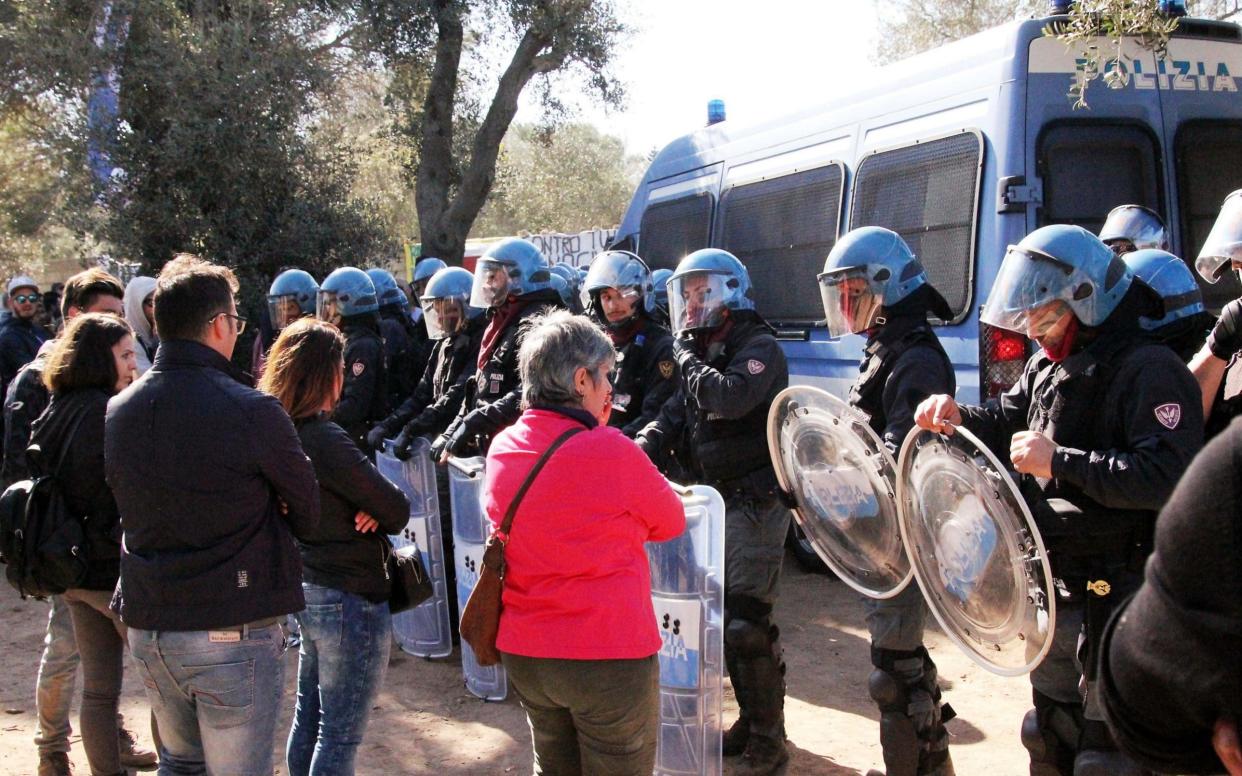
The sun-dappled olive groves of Italy’s deep south have become a battleground as riot police and protesters clash over the building of an ambitious gas pipeline.
Tension over the uprooting of centuries-old olive trees to make way for the pipeline boiled over on Tuesday, as police armed with batons and shields charged hundreds of protesters in an olive grove in the region of Puglia, in the heel of the Italian boot.
The 545 mile-long Trans Adriatic Pipeline, or TAP, will bring natural gas from Azerbaijan in the Caucasus to Italy, but it has proved controversial.
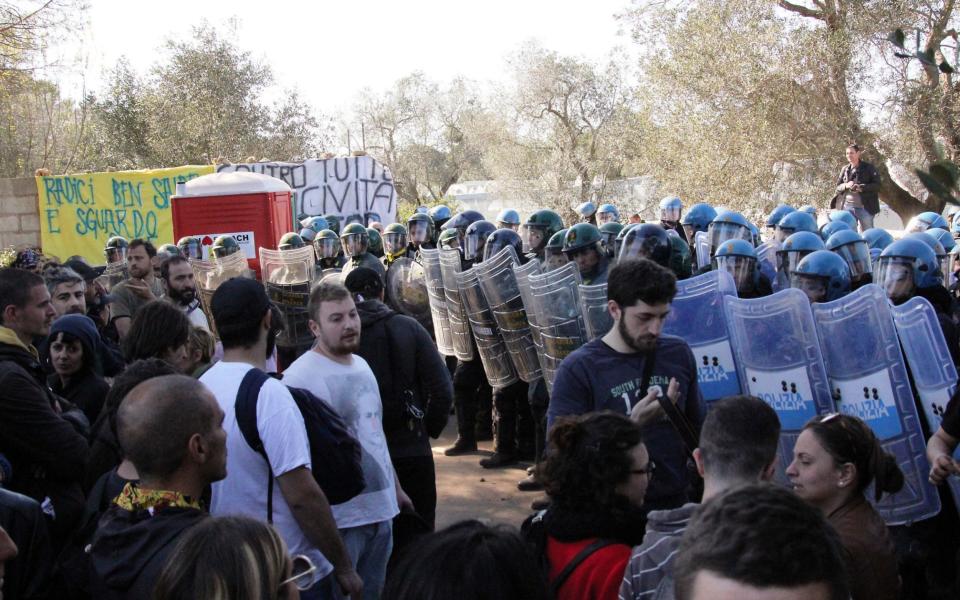
Protesters have called for it to be re-routed so as to avoid an area where people rely on tourism and olive oil for their livelihoods.
The clashes broke out near the village of Melendugno, south of the elegant Baroque town of Lecce, where protesters are trying to block the uprooting of hundreds of olive trees. Scuffles broke out as police tried to move demonstrators away from the construction site. Protesters threw stones and bottles at the police and several people were injured.
The digging up of the olive trees was temporarily suspended but later resumed. “Our battle is entirely legitimate and we have always wanted it to be peaceful, but the response of the police was disproportionate,” said Gianluca Maggiore, one of the protest leaders.
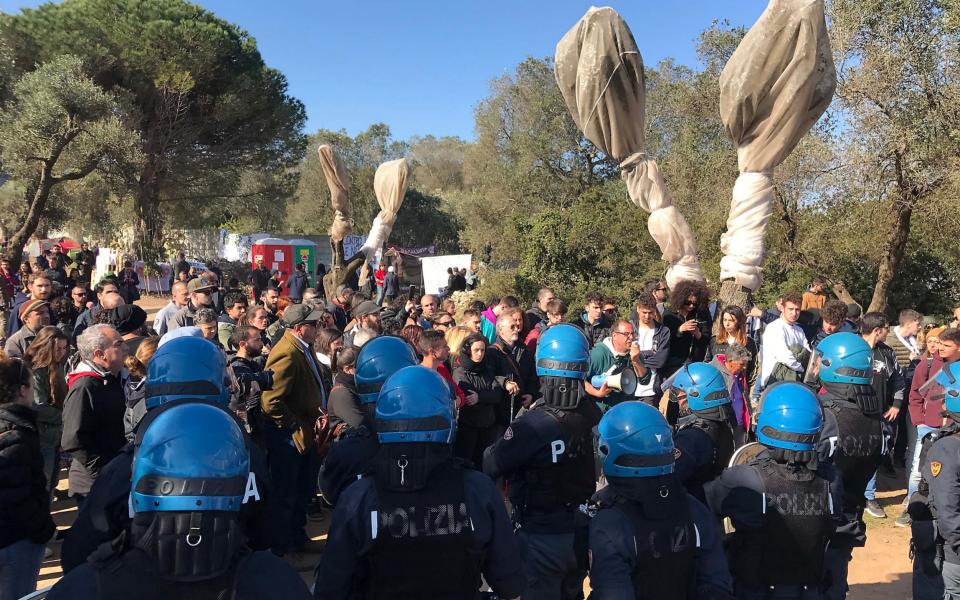
The regional government of Puglia is opposed to the pipeline, with Michele Emiliano, the centre-Left governor, branding it “illegal”. “The government has proved incapable of listening to Puglia,” said Mr Emiliano, who is challenging former prime minister Matteo Renzi for leadership of the centre-Left Democratic Party, as Italy heads towards elections next year.
But those objections have been overridden by Rome, which says the project is of huge strategic significance because it will allow Italy to diversify its energy supply. “The project is fully in accordance with all law,” said Gian Luca Galletti, the environment minister. “We hope that common sense will prevail.”
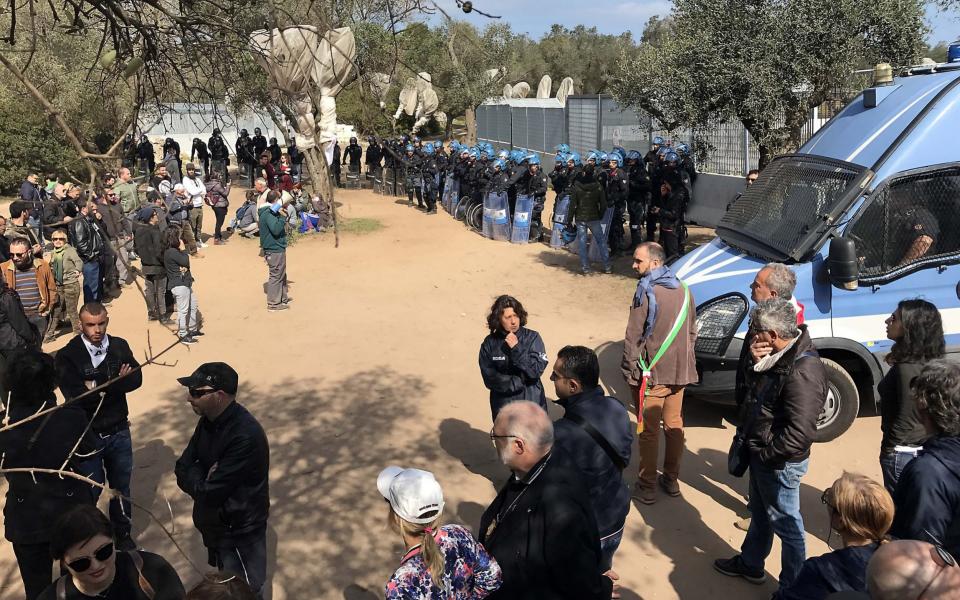
He said the supply of gas would also make Italy less dependent on coal and would help the country reduce its greenhouse gas emissions.
The pipeline, which will cost an estimated €40 billion by the time it is completed in 2020, will bring gas from Azerbaijan to Italy via Turkey, Greece and Albania. It is the final stage of the 2,200 mile-long Southern Gas Corridor, which is intended to reduce the EU’s dependence on Russian energy.
An Italian court gave permission on Monday for construction work on the project to begin, rejecting calls by campaigners to move the pipeline elsewhere in Puglia.
Around 2,000 olive trees will have to be removed and transplanted to make way for the pipeline but construction workers have only a brief window in which to dig them up.
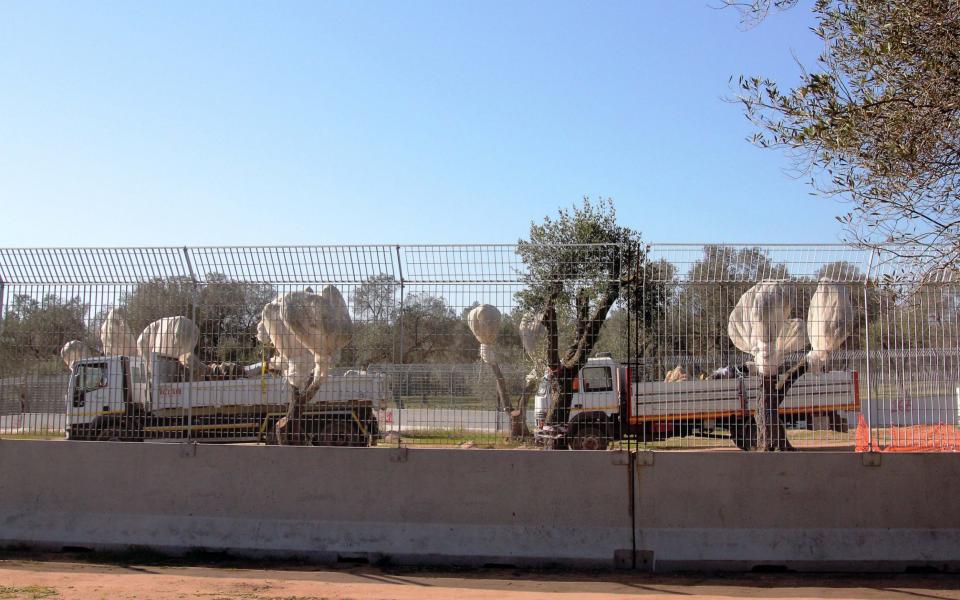
By next month the trees will go through a growth spurt which will continue for the next six months. So far only around 60 trees have been uprooted. If they cannot be removed in the next few weeks, the consortium behind the project will have to wait until November to carry out the work.
The plan is to replant the trees once construction work is finished. The trees “will be transported to a specially designated nursery area…where they will be stored and cared for, for a period of around three years,” the pipeline consortium, which includes BP, explained.
“Once the pipeline construction activities are completed in 2019, the olive trees will be brought back and planted.”
The route of the pipeline was chosen so as to have the least environmental impact on the region, the consortium said. Around 20 other locations were considered but rejected.

 Yahoo News
Yahoo News 
